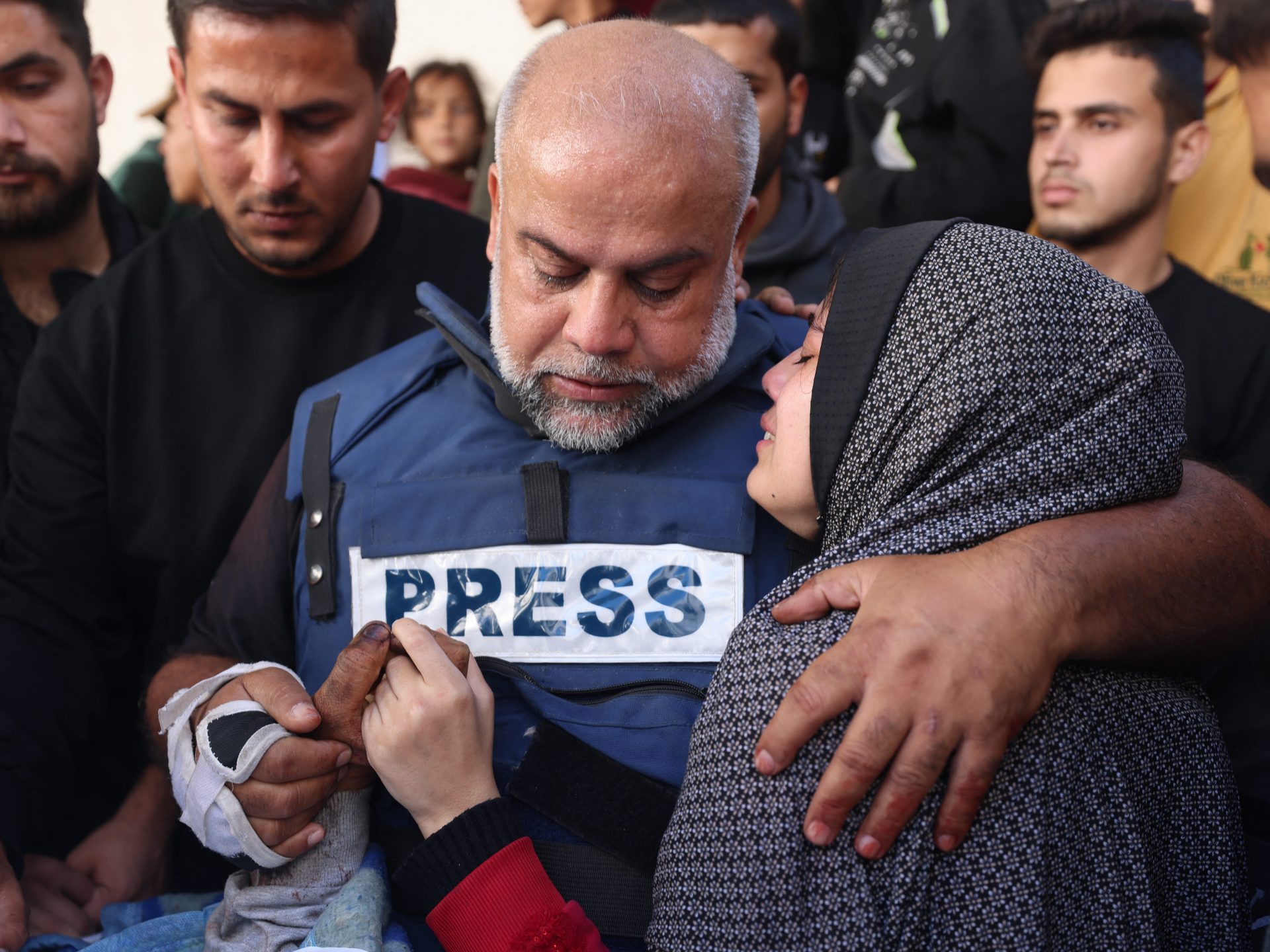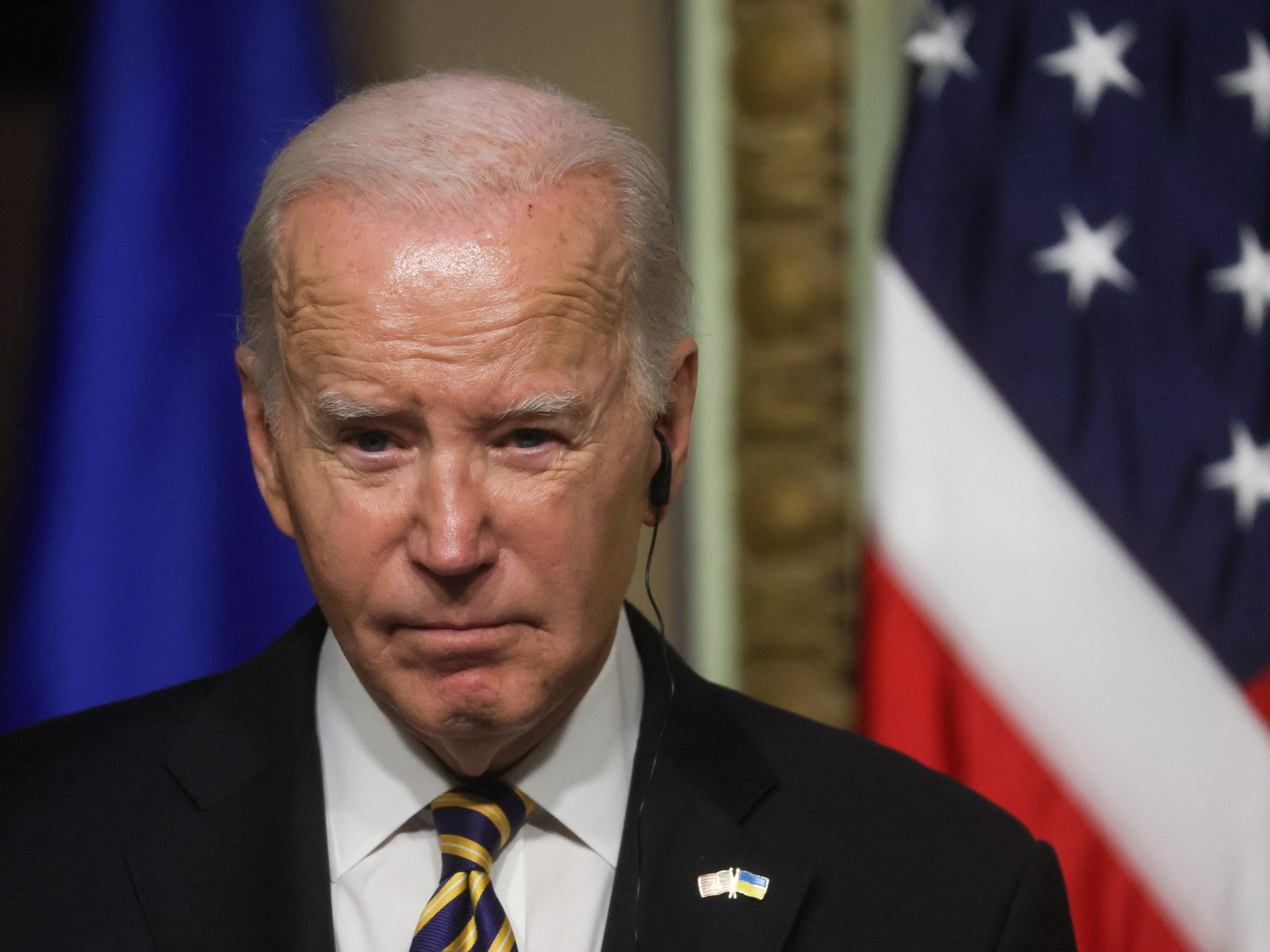At least 40 people killed in central Gaza as Israel touts post-war plan
Israel’s military has killed at least 40 Palestinians in attacks on central Gaza ahead of a new round of international talks to broker a truce and as Tel Aviv has outlined a plan for the enclave after the war ends.
The “heinous massacre” committed by Israeli forces in Deir el-Balah in the central part of the territory injured more than 100 people, Gaza’s government media office said in a statement late on Thursday, adding that the overwhelming majority of casualties were women and children.
“We hold the American administration and the international community, additionally to Israel, fully responsible for these ongoing crimes, and we call on the free world to immediately put an end to this war of extermination that the Israeli army is waging against civilians,” it said.
Reporting from Rafah in southern Gaza, Al Jazeera’s Tareq Abu Azzoum said residential homes were “attacked without any prior warning” in the strikes.
Hamas said in a statement on Friday that the attacks on homes “confirm to the international community that it [Israel] is a rogue entity that does not care about human laws and values”.
More than 29,000 Palestinians, mostly children and women, have been killed by the Israeli army since the start of the war on October 7, according to the Ministry of Health in Gaza.
Yet United States National Security Council spokesperson John Kirby said late on Thursday that negotiations for a ceasefire and the exchange of captives held in the enclave for Palestinian prisoners had been “constructive”.
A Hamas delegation left Cairo, Egypt, on Friday after three days of talks, for which Israeli Prime Minister Benjamin Netanyahu did not send representatives.
Egypt and Qatar-mediated negotiations are expected to continue later on Friday in Paris, with Israel also sending a delegation. A renewed ceasefire proposal could be crafted in the French capital, but the details are still unclear.
‘Freedom to operate’ in future Gaza
The deadly Israeli ground and air attacks on Gaza are continuing as Tel Aviv is carrying on with its plans for the future of the besieged enclave that run counter to what the US and other world and regional powers have said they want to see in the Palestinian territory.
Israel’s plan for after the war envisions the installation of “local officials” with no links to countries or entities who support “terrorism” to administer Gaza, according to a report by the Times of Israel on a plan presented by Netanyahu.
The report said that the Israeli military “will maintain an indefinite freedom to operate throughout the entire” Gaza Strip – similar to its military occupation of the remaining Palestinian territories across the West Bank.
Netanyahu’s plan also describes the “complete demilitarisation” of Gaza “beyond what is required for the needs of maintaining public order” and makes no mention of the Palestinian Authority (PA), which Washington wants to be in control of the territory after the war is over.
The Israeli prime minister, who presented the document to his security cabinet, has previously said that the PA will not be part of a future post-war Gaza.
Israel has also moved ahead with its plan to establish a “buffer zone” on the Palestinian side of its border with the strip, which will effectively shrink the territory’s frontiers, despite objections by the United Nations.
To realise this plan, the Israeli military has been razing homes and buildings along the envisioned zone using air strikes, large explosives planted by its ground forces and bulldozers.
Analyst Ben Friedman said that while US Secretary of State Antony Blinken expresses concern for Palestinian lives in Gaza, Washington is not willing to “really stand up to Israel”.
“In my opinion, that is threatening them with withdrawal of support, including financial support, if they don’t do what we asked them to do,” Friedman, policy director at the Defense Priorities think tank, told Al Jazeera.
“You have to threaten Israel with some consequences if they don’t go along with what you’re asking. Otherwise, it’s just sort of empty rhetoric that’s designed to look critical without actually making any difference,” he added.
This week the US again vetoed a third resolution at the UN Security Council calling for an immediate ceasefire in Gaza, which drew widespread international condemnation.



